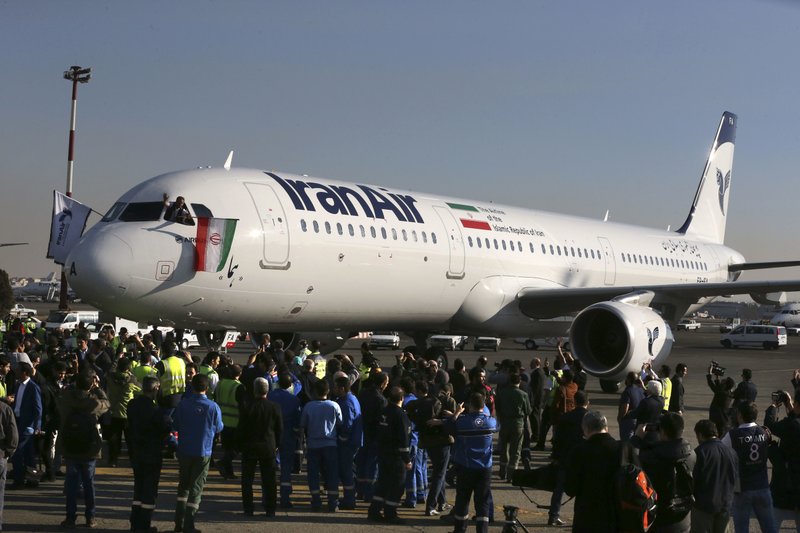
(Photo:AP)
From airplanes to oilfields, billions of dollars are on the line for international corporations as President Donald Trump weighs whether to pull America out of Iran’s nuclear deal with world powers.
Regardless of where they are headquartered, virtually all multinational corporations do business or banking in the US, meaning any return to pre-deal sanctions could torpedo deals made after the 2015 agreement came into force.
That threat alone has been enough to scare risk-averse firms, like Boeing Co., into slow-walking deals agreed to months ago. A complete pullout by the US would wreak further havoc and likely frighten off those considering making the plunge.
“I absolutely think those on the fence will not jump in,” said Richard Nephew, a former sanctions expert at the US State Department who worked on the nuclear deal and now is at New York’s Columbia University. “The only ones who will, will be those who see tremendous monetary benefit and no US risk.”
The 2015 Iran nuclear deal lifted crippling economic sanctions that had locked Iran out of international banking and the global oil trade. In return, Tehran limited its enrichment of uranium, reconfigured a heavy-water reactor so it couldn’t produce plutonium and reduced its uranium stockpile and supply of centrifuges.
For Western businesses, the deal meant access to Iran’s largely untapped market of 80 million people. Most prominently, airplane manufacturers rushed in to replace the country’s dangerously dilapidated civilian fleet.
In December 2016, Airbus Group signed a deal with Iran’s national carrier, IranAir, to sell it 100 airplanes for around $19 billion at list prices. Boeing later struck its own deal with IranAir for 80 aircraft with a list price of some $17 billion, promising that deliveries would begin in 2017 and run until 2025. Boeing separately struck another 30-airplane deal with Iran’s Aseman Airlines for $3 billion at list prices.
But Boeing has yet to deliver a single aircraft to Iran. The Chicago-based company’s CEO recently stressed it understands the “risks and implications around the Iranian aircraft deal,” which would be the biggest business agreement between an American company and Iran since the 1979 Islamic Revolution and US Embassy takeover.
“I absolutely think those on the fence will not jump in,” said Richard Nephew, a former sanctions expert at the USState Department who worked on the nuclear deal and now is at New York’s Columbia University. “The only ones who will, will be those who see tremendous monetary benefit and no US risk.”
The 2015 Iran nuclear deal lifted crippling economic sanctions that had locked Iran out of international banking and the global oil trade. In return, Tehran limited its enrichment of uranium, reconfigured a heavy-water reactor so it couldn’t produce plutonium and reduced its uranium stockpile and supply of centrifuges.
For Western businesses, the deal meant access to Iran’s largely untapped market of 80 million people. Most prominently, airplane manufacturers rushed in to replace the country’s dangerously dilapidated civilian fleet.
In December 2016, Airbus Group signed a deal with Iran’s national carrier, IranAir, to sell it 100 airplanes for around $19 billion at list prices. Boeing later struck its own deal with IranAir for 80 aircraft with a list price of some $17 billion, promising that deliveries would begin in 2017 and run until 2025. Boeing separately struck another 30-airplane deal with Iran’s Aseman Airlines for $3 billion at list prices.
But Boeing has yet to deliver a single aircraft to Iran. The Chicago-based company’s CEO recently stressed it understands the “risks and implications around the Iranian aircraft deal,” which would be the biggest business agreement between an American company and Iran since the 1979 Islamic Revolution and US Embassy takeover.


